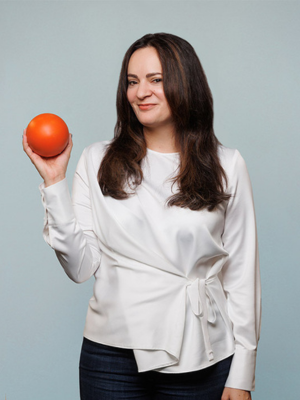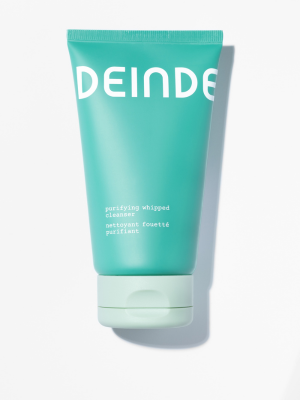Beauty continues to bet big on biotech. Case in point: Brand incubator Debut raised $70 million last fall, including $40 million from a Series B round led by L’Oréal’s venture capital fund Business Opportunities for L’Oréal Development (BOLD).
Debut positions itself as a vertically integrated, beauty-focused biotech company creating innovative bioactive ingredients, many of which are only found in trace amounts in nature and then incorporated into skin care products. According to Dominique Gagnon, Vice President/GM of Consumer Brands at Debut, “What’s unique about our business model is that we have an in-house screening, testing, and formulation platform that allows us to move very, very quickly.”

Gagnon continues, “We want to elevate what we bring to consumers and make sure we are at the forefront of the latest science and technology. Over the past 12 months, we’ve created and tested more than 250 novel, safe, clinically-backed bioactive ingredients.” Debut also uses RNA sequencing technology, has bioinformatics capabilities, and builds its own software to analyze data and optimize ingredients for solubility in skin-friendly formulas.
Debut’s top priority of late has been launching its first DTC skin care brand, Deinde (Latin for “Next, then, thereafter”), which officially bowed on January 17. Debut put Deinde on the fast-track to launch after learning about “inflammaging” from global scientific experts and reviewing their research. Gagnon recalls, “We went back to our ingredient pipeline and started screening our ingredients for strong anti-inflammatory activity. We analyzed more than 7,000 molecules and tested 250. When we found that an ingredient called naringenin outperformed the leading comparable active on the market by 15 times, we got incredibly excited. We had a really powerful ingredient and a new understanding of what happens at the cellular level that could change the game for consumers.”

Taylor Oswald, Deinde’s Formulation Lead, explains, “The skin is really the first line of defense from outside aggressors like UV rays and pollution—which cause the skin to enter an inflammatory state while fighting these intruders.” Over time, chronic low-grade inflammation breaks down proteins like collagen and elastin that give the skin its volume and elasticity. Inflammaging can also compromise the skin’s barrier function and limit its ability to retain water. “This can ultimately manifest as dry skin with wrinkles, dullness, and uneven skin tone,” says Oswald.
“We don’t want to give consumers what they already have, and inflammaging is new to the average beauty consumer. The only way biotech will make a difference is if we can outperform every step of the way,” Gagnon explains.
Naringenin is a potent polyphenol antioxidant found naturally in citrus fruit peels, but it’s very difficult to extract and stabilize. Debut’s biotech naringenin offers several undeniable advantages. “In terms of sustainability, Debut’s naringenin requires 99% less land and water while ensuring precision dosage with every application,” Gagnon explains.
In addition to targeting inflammatory pathways, naringenin has also been shown to have multi-functional benefits like its close relative vitamin C, including providing environmental protection and upholding the skin’s matrix of supportive proteins. However, unlike vitamin C, naringenin has not been associated with the potential for irritation. “Naringenin is able to target inflammatory pathways that vitamin C can’t, which is why they exist independently in citrus fruits,” says Gagnon.
“When we were talking to researchers studying the inflammasome, we learned that inflammaging can start to take a visible toll on the skin around age 25 when the skin’s natural regenerative and healing processes begin to decline,” says Gagnon.
In Debut’s own studies, Deinde mitigates the skin biomarkers that rise with environmental stress and brings the skin almost back to its pre-stress state. Hence, Deinde’s target demographic of 25- to 35-year-olds. “This is a ripe opportunity to sustain skin health and longevity versus trying to fix damage later on,” explains Gagnon. Deinde is geared towards “Zennials” (older Gen Z’ers and younger Millennials) who visit dermatologists and value science-backed skincare solutions.
“We don’t want to give consumers what they already have, and inflammaging is new to the average beauty consumer. The only way biotech will really make a difference is if we can outperform every step of the way,” Gagnon explains.
Deinde’s product lineup includes Skin-Strengthening Serum ($88), which targets all five signs of inflammaging (fine lines, dullness, uneven tone, dryness, and uneven texture), the MyMicrobiome-certified Purifying Whipped Cleanser ($32) and the Moisture-Locking Face Stick ($36). The serum and face stick are primarily powered by the brand’s biotech-derived anti-inflammatory naringenin.
Among Deinde’s other noteworthy ingredients are upcycled date seed extract that has been clinically proven in a double-blind, placebo-based study to reduce redness and sallow skin. Certified Upcycled by the Upcycled Food Association—a non-profit focused on reducing food waste and food scarcity by growing the upcycled food economy—this ingredient is part of the world’s first Upcycled Certified® Program.
Deinde’s formulations also include a biotech version of squalane, an oil-like natural ingredient used as an emollient, lubricant, and humectant in skin care. In its raw form, Deinde’s squalane is ECOCERT-approved, a USDA Certified Bio-Based Product, and is clinically proven to be non-comedogenic, improve cell turnover, provide moisture, improve skin elasticity, reduce fine lines and wrinkles, and enhance skin barrier integrity.
Lab tests aren’t the only measure of Deinde’s efficacy. “Beyond proving our results scientifically, we’re seeing results in people as well,” says Gagnon. “In-vivo, we were able to show a reduction in fine lines and deep wrinkles, as well as improvement in uneven skin tone and redness. We also saw significant increases in skin moisturization and elasticity.”
In an eight-week, double-blind, placebo-controlled study of 30 participants, 100% showed an improvement in skin moisturization and skin elasticity after eight weeks of using Deinde’s 0.45% naringenin concentration. 97% showed an improvement in both deep wrinkles and fine lines, and 88% showed an improvement in skin redness.
Deinde’s three launch SKUs are designed to be used as a regimen, and the brand is planning to introduce a traditional moisturizer formula as well as targeted treatments for the eye and neck areas soon.
To help fuel future innovations across the beauty industry, Debut recently expanded into B2B, which allows both independent and large beauty brands to create biotech-powered formulations that feature its proprietary ingredients. According to Gagnon, “Debut is already servicing a wide array of global brands—and we are introducing a dermatologist program to spread the word about Deinde.”
Debut’s funding appears to be in line with their goals. “Coming out of our Series B last year, I think we have a very strong runway through 2025. We are in a position to focus on Deinde sales and other aspects of the Debut business, such as B2B partnerships,” says Gagnon.
As Debut sets forth to change the face of skin care with biotech, it’s guided by a larger mission. “Our goal is to provide the highest possible percentage of bio-based actives and the lowest carbon footprint,” says Gagnon. “At the heart, we’re part of a broader movement and revolution in terms of changing the beauty industry.”




